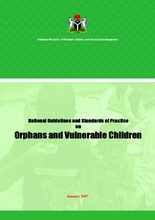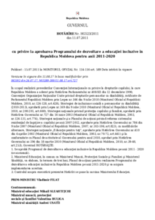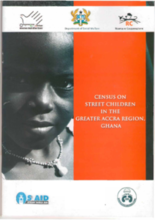Displaying 13151 - 13160 of 14525
In 2004 the UN Children’s Fund (UNICEF) projected a grim future for Swaziland as a consequence of the world's highest HIV prevalence rates. Although the nation is struggling, it is managing to cope.
En 2007, les adoptions au Népal ont été confrontées à une grande pression et de sévères critiques de la part de médias nationaux et internationaux sur des allégations de corruption et d’enfants vendus. Comme conséquence, nombre de pays européens prohibaient alors les adoptions au Népal.
Guidance for development and programming of child friendly spaces in emergencies.
Guidelines developed to assure and improve the quality of services for the well being, protection and development of orphans and vulnerable children in Nigeria
"Orphanaid Africa, a non-government organization (NGO) that sponsors families to care for orphans instead of taking them to orphanages, is calling on government to abolish orphanages in Ghana," says this article from Modern Ghana.
Particularly relevant to alternative care issues is the highlighted section on the Bulgarian experience of integrating advocacy, fundraising and communication in order to influence the deinstitutionalization of children without parental care in Bulgaria.
Children with disabilities in Africa are among the most neglected groups in the policy domain as well as in the private sphere. The majority of these children face enormous economic, political, and social barriers that have an adverse impact on their physical, social and intellectual development and wellbeing.
În scopul realizării prevederilor Convenţiei Internaţionale cu privire la drepturile copilului, la care Republica Moldova a aderat prin Hotărîrea Parlamentului nr.408-XII din 12 decembrie 1990, Convenţiei Organizaţiei Naţiunilor Unite privind drep
The main objective of the Census was to create a database on Street Children that could be used as a platform to enable Government to design relevant policies and spearhead the delivery of services in partnership with NGOs, Civil Society Organisations (CSOs), Community Based Organisations (CBOs), families, communities and other stakeholders, to prevent and/or greatly reduce the phenomenon of Street Children in Ghana.







